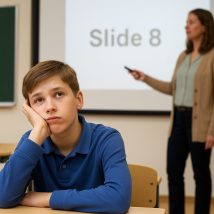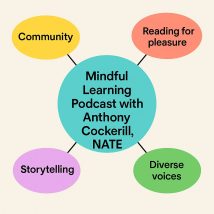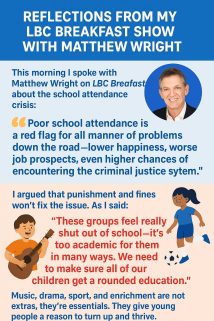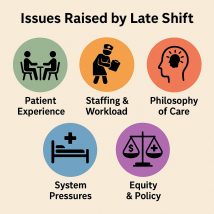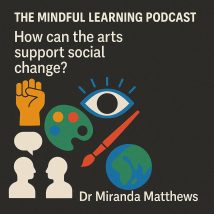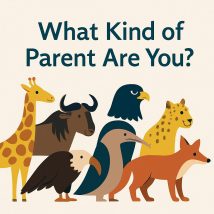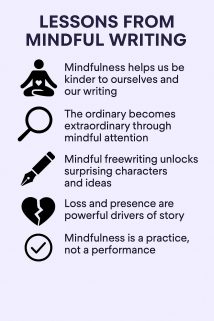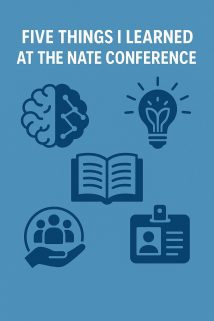For
target readership of the post
-
Analysis and Study Guide: A Christmas Carol by Charles Dickens
This new ‘Analysis and Study Guide to A Christmas Carol’ is written to help GCSE students genuinely understand Dickens’ novella and write confident, high-level exam responses. It draws directly on my experience teaching ‘A Christmas Carol’ for over twenty years in secondary classrooms, alongside my work as an academic at Goldsmiths where I research the best ways to teach diverse cohorts. Unlike formulaic revision guides, this book focuses on ideas, argument and clarity. It shows students how Dickens shapes meaning through structure, language, character and context, without reducing the novel to lists of quotes or rigid paragraph templates. Each section models the kind of thinking examiners reward, from building a clear thesis to selecting evidence that genuinely supports an argument. The guide includes detailed contextual explanations, accessible critical perspectives, close language analysis, character studies, theme exploration, exam style questions with guidance, creative tasks and speaking activities. The complete text of ‘A Christmas Carol’ is included, with clear, supportive annotations throughout. Written in an encouraging, student friendly voice, this guide works equally well for independent revision, classroom teaching and last minute consolidation. It is ideal for GCSE students aiming for top grades, and for teachers looking for a rigorous, readable resource grounded in real classroom practice.
-
7 Ways For Teachers to become Researchers
In December 2025, I delivered an online session for FE lecturers as part of the British Library Research Network, working with Debbie Bogard of the British Library. We explored seven things every teacher should know about research, using the original Alice in Wonderland manuscript as a metaphor for how inquiry really works. Research is never perfect or polished. It is exploratory, creative, full of revision and curiosity, just like a teacher’s everyday practice. We introduced practical ways to develop a research question, map its key ideas, choose an appropriate methodology, evaluate the credibility of data, and create a meaningful literature review. We also encouraged lecturers to think about more imaginative forms of sharing findings, including podcasts, infographics and multimodal projects. Examples from the Parklife project showed how creative participatory research can have a significant impact on communities and young people. The central message of the session was that research is an act of professional courage. It is not reserved for academics. With the support of the British Library Research Network, FE educators can shape their own inquiries, strengthen their critical thinking, and generate new knowledge that benefits learners and the wider sector.
-
Five Things I Learnt from Running My Workshop at Ecology in the Art Curriculum event
Begin with breathing, end with agency Our recent CPD, run by the British Ecological Society, the Centre for Arts and Learning, the MA in Art and Ecology, and the PGCE Art and Design programme at Goldsmiths, brought together teachers, artists, and ecologists to explore how mindfulness and creative pedagogy can help students reconnect with the natural world. We began simply, with a 7–11 breathing pattern, in for seven, out for eleven, and the room shifted. Teachers found themselves calmer, more attentive, and ready to imagine. A guided visualisation led participants into remembered or imagined parks, awakening ecological awareness. One delegate described how “thinking about ecology in architecture always meant thinking about care, what lives around our buildings.” From that mindful pause grew dialogue, drawing, and story. Participants wrote, sketched, and mapped experiences of safety, resilience, and belonging. Multimodality helped everyone find a voice, whether through words, images, or textures, and teachers began to see how pupils could express complex feelings about public space. Stories carried particular weight. The tale of the cracked pot, a vessel that leaks water and nurtures flowers on its path, became a metaphor for resilience and repair. Teachers shared their own narratives of strength and imperfection, connecting personal reflection with community action. By the end, delegates were planning how to adapt these approaches in their own settings, mapping safe routes with pupils, collaborating with councils, and gathering data to balance perception and reality. Change, we realised, does not arrive as a slogan but travels through networks of small, mindful acts. As I suggest in The Mindful Creative Writing Teacher, small rituals of attention such as breathing, noticing, and creating build agency. They help us move from reflection to action, from seeing to doing, with care.
-
Five Things English Teachers Can Teach Us About Reading, Writing, and Living
I recorded this episode of the Mindful Learning Podcast with Anthony Cockerill, director of the National Association for the Teaching of English (NATE), because I believe English teachers have so much to teach us beyond the classroom. Our conversation was a chance to explore what reading, writing, and language mean for all of us as human beings, not just for students in schools. Anthony spoke passionately about the life-changing power of reading for pleasure, the way writing can help us respond to and reflect on life, and the importance of valuing every community’s language. He reminded me that stories shape who we are and that teaching thrives best in community, not in isolation. These are not just classroom lessons — they are life lessons. I wanted to share this podcast because, at a time when education is often framed in narrow, utilitarian terms, we need to remember the broader value of English. Reading, writing, and language are not luxuries; they are ways of being human, of building empathy, resilience, and imagination. Listen to the full conversation and read the blog here: 👉 https://www.francisgilbert.co.uk/2025/09/five-things-english-teachers-can-teach-us-about-reading-writing-and-living/
-
Five Ways to Improve School Attendance
Reflections from my LBC Breakfast Show with Matthew Wright (31 August 2025) This morning I spoke with Matthew Wright on LBC Breakfast about the school attendance crisis. Matthew warned: “Poor school attendance is a red flag for all manner of problems down the road—lower happiness, worse job prospects, even higher chances of encountering the criminal justice system.” I argued that punishment and fines won’t fix the issue. As I said: “These groups feel really shut out of school—it’s too academic for them in many ways. We need to make sure all of our children get a rounded education.” Music, drama, sport, and enrichment are not extras, they’re essentials. They give young people a reason to turn up and thrive. 👉 If you’re reading this on Instagram, please paste the link into your browser to access the full article on francisgilbert.co.uk .
-
Seven Things I Learnt from Land of the Free? Trump’s War on Press, Protest and Academic Freedom
What does freedom of expression really mean in 2025? On August 5th, I attended a deeply thought-provoking event hosted by Index on Censorship at St John’s Church, Waterloo, where my wife Erica Wagner was one of the speakers. The panel launched the new Index issue titled Land of the Free? and gathered journalists, editors, and activists to reflect on Donald Trump’s legacy and the erosion of civil liberties across the US and UK. From SLAPP lawsuits to the criminalisation of protest, the conversation reminded us that freedom is not a given: it must be defended, questioned, and collectively sustained. This blog distils seven key lessons I took away from the night, ranging from the legacy of the War on Terror to the global assault on so-called “woke” values. #FreedomOfExpression #IndexOnCensorship #LandOfTheFree #ProtestRights #SLAPPs #CultureWars #Democracy #WritersLife #PoliticalWriting #CreativeNonfiction #EricaWagner #FrancisGilbert #HumanRights #SpeakUp #UKPolitics #USPolitics
-
Five Ways Arts Practice Can Facilitate Social Change
🎙️ I wrote this blog and recorded this Mindful Learning Podcast episode because I believe the arts are a powerful, often overlooked force for real social change. In conversation with Dr Miranda Matthews, we explore how creative practice can help us respond to the climate crisis, amplify marginalised voices, and transform education from the ground up. We talk about art as participation, not performance; about murals in schools and selkie suits in seal sanctuaries; and about how storytelling and small actions ripple outwards. 🖼️ This one’s for teachers, artists, students—and anyone wondering how creativity can make a difference. 👉 Read the blog and listen to the podcast: https://www.francisgilbert.co.uk/2025/07/five-ways-arts-practice-can-facilitate-social-change If you’re reading this on Instagram, please paste the link into your browser to access the full article and audio. #MindfulLearningPodcast #ArtsForChange #CreativeEducation #FrancisGilbert #MirandaMatthews #EcologiesInPractice #Goldsmiths #ArtsAndLearning #ClimateJustice #CriticalPedagogy #StoryOfChange
-
What Kind of School Parent Are You?
🦒🦊🐆 What kind of parent are you when it comes to your child’s education? I’ve spent decades working in education, as a teacher, author, and now as Dr Francis Gilbert, Head of Education at Goldsmiths, University of London. I’ve written two books for parents about navigating schools, Parent Power and Working the System, and while they’re over a decade old, revisiting them recently reminded me how little has changed. The system is still confusing. The stakes are still high. And parents are still left feeling overwhelmed by league tables, playground gossip, and hidden admissions rules. That’s why I’ve created this quiz. It’s short, fun—and surprisingly revealing. You’ll discover your instinctive parenting style when it comes to education. Are you a Giraffe? A Fox? A Wildebeest? Each result comes with advice you can actually use. 🎯 It’s more timely than ever—because your approach as a parent really does shape your child’s experience at school. 📥 Take the quiz and download the free printable version from my website. 👉 If you’re reading this on Instagram, you’ll need to paste the link into your browser to access the full article and quiz. #Parenting #SchoolAdmissions #EducationMatters #ParentPower #FrancisGilbert #Goldsmiths
-
Eight Transformative Moments from Our Reciprocal Teaching Day at Goldsmiths
🖋️ “It didn’t have to be clever. It just had to be true.” At a recent MA Creative Writing and Education sharing day, alumna Maryam Ahmadi led a powerful storytelling session exploring how fables can carry emotional and moral truths that essays and arguments often can’t. The bold linocut-style image here captures the spirit of the session: a teacher and group of students surrounded by symbols of learning and connection—a heart, a lightbulb, a book, and leaves. A chalkboard shows the simplest of equations: 1 + 1, reminding us that real learning is reciprocal. When we share stories, we’re not just transmitting knowledge—we’re transforming one another. Maryam began by reading Patrick and Flippa, a deceptively gentle children’s book about a lonely polar bear and a persistent penguin. The group then wrote their own fables, revealing themes of exile, regeneration, defiance, and hope. One participant wrote about a deer who could only speak in questions. Another told of a fish who forgot how to swim in clean water. These were not writing exercises. They were acts of quiet truth-telling. 💡 As one attendee put it: “It’s easier to say something difficult through the story of a fox. You get closer without flinching.” 📚 This workshop was part of the MA in Creative Writing and Education at Goldsmiths, University of London—a unique programme where writers become educators, and educators deepen their creative practice. 🔗 Find out about the MA: www.gold.ac.uk/pg/ma-creative-writing-education/ #MACreativeWritingAndEducation #GoldsmithsUniversity #StorytellingAsPedagogy #MindfulTeaching #Fables #CreativeWritingWorkshop #WritingToHeal #WritingToLearn #RadicalPedagogy #TeacherWriter #ReciprocalLearning
-
Five Reasons Why Mindfulness and Creative Writing Weave Together Well
What happens when we stop judging our writing—and simply listen? In this new blog post, I reflect on a recent workshop where writers used mindfulness to unlock voice, memory, and emotion. Together we explored how freewriting, object meditation, and mindful noticing can transform both what we write and how we feel about writing. Participants wrote about lipstick, tissue packets, Kindles—and discovered surprising characters, deep emotional truths, and stories of presence, loss, and joy. These moments reminded us that mindfulness is not about calming down—it’s about showing up. Drawing on my book The Mindful Creative Writing Teacher (Gilbert, 2025) and C. T. McCaw’s concept of “thick mindfulness,” I share five practical and poetic takeaways from the session. If you teach, write, or are simply curious about the link between awareness and creativity, this one’s for you. 💡 Read now and see how mindful writing can be radically freeing. #MindfulWriting #CreativeWritingTeacher #Freewriting #MindfulnessInEducation #WritersOfInstagram #AmWriting #WritingWorkshop #GoldsmithsUniversity #FrancisGilbert #WritingPrompt #MindfulLiving
-
Five Hidden Truths About Parenting Support , and How To Find Help That Actually Works
I wrote this blog because so many parents still aren’t getting the support they need. As the author of Parent Power and Working the System, and a long-time advocate for families, I’ve seen just how powerful parenting support can be — when it’s done well. Too often, the help that really works is hidden behind jargon, red tape, or lack of publicity. And too many families are being offered programmes that aren’t backed by evidence. Inspired by Nesta’s 2025 report Parenting Support at Scale, I’ve written a practical, no-nonsense blog to help parents navigate what’s out there — and how to find what actually works. In the blog, I break down five key findings every parent should know, from the benefits of structured programmes like Triple P and Incredible Years to free online tools like Tiny Happy People. I’ve included links to trusted websites, tips on what to ask for, and suggestions for getting tailored support. Please share this with any parents or carers who might need a bit of guidance, or who don’t know where to start. #ParentingSupport #ParentPower #MindfulParenting #TripleP #IncredibleYears #Nesta #FamilyHelp #EarlyYears
-
Why English Teaching Still Matters: Insights from the 2025 NATE Conference
What does it mean to teach English with creativity, care, and courage in 2025? At this year’s NATE (National Association for the Teaching of English) conference, I joined a passionate group of teachers, academics, publishers, and educational innovators, some seasoned, others just starting out, to explore that very question. In this new blog post, I reflect on five powerful lessons from a day filled with poetic metaphors, Generation Alpha pedagogy, and mindful creative writing. From Clare Lawrence’s unforgettable lentil metaphor, to conversations about inclusive teaching for a post-2010 cohort, to the joyful solidarity of English educators nationwide: this was a conference where research met emotion, and practice met possibility. I also had the pleasure of leading a mindful creative writing workshop, inspired by my book The Mindful Creative Writing Teacher (Gilbert, 2025), and saw first-hand how freeing and transformative creative writing can be when rooted in reflection rather than performance. If you care about teaching English in ways that centre imagination, identity, and student voice, and want to explore this further, take a look at our MA in Creative Writing and Education at Goldsmiths. 🔗 MA info: https://www.gold.ac.uk/pg/ma-creative-writing-education/ #MindfulWriting #NATE2025 #CreativePedagogy #EnglishTeachers #TeacherCommunity #FrancisGilbert #MindfulCreativeWritingTeacher
-
Five things I’ve learnt training to be a mindfulness teacher
Earlier this year, I completed the Breathworks mindfulness teacher training—a rigorous and transformative journey rooted in compassion, embodiment, and lived experience. As part of the training, I led the Mindfulness for Stress course at Goldsmiths. It taught me something simple but profound: mindfulness isn’t something you explain. It’s something you do—together. The course invites people into a shared practice. Week by week, breath by breath, we learn not to escape stress but to meet it differently—with gentleness, attention, and care. I’ve seen how powerful it is when people turn toward themselves with kindness, not judgement. That shift—toward noticing, softening, and storytelling—transforms more than you might expect. Mindfulness isn’t about fixing or improving who you are. It’s about showing up for your experience, fully and kindly. This work has changed me. It’s helped me listen to my body, soften my inner voice, and meet difficulty with presence instead of resistance. If you’re curious about mindfulness, teaching it, or simply beginning to practise, I’d love to connect. Feel free to reach out—or just pause for a breath, right here. #Mindfulness #Breathworks #MindfulTeaching #Wellbeing #Embodiment #Compassion #FrancisGilbert #Goldsmiths #MindfulLiving





